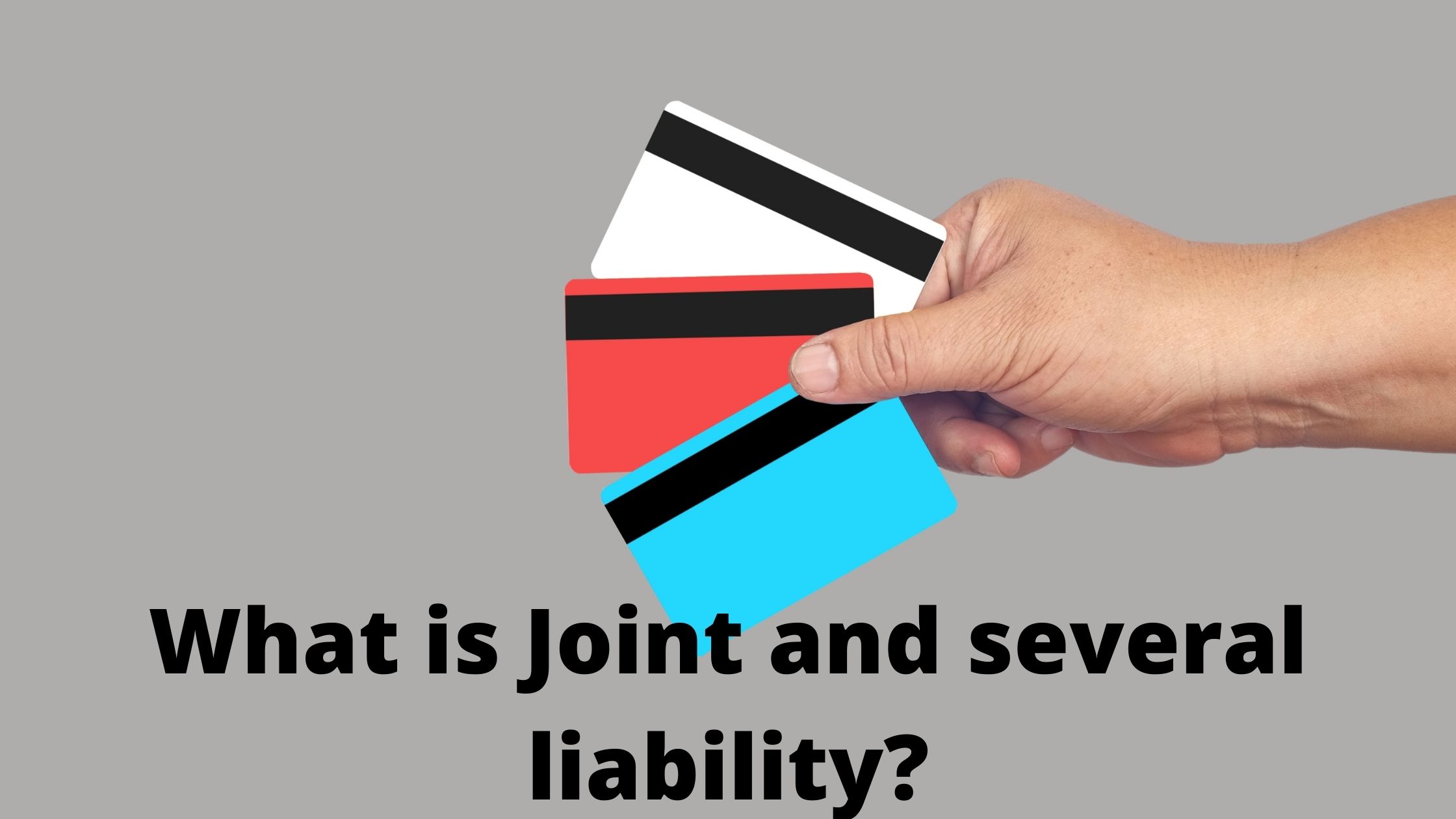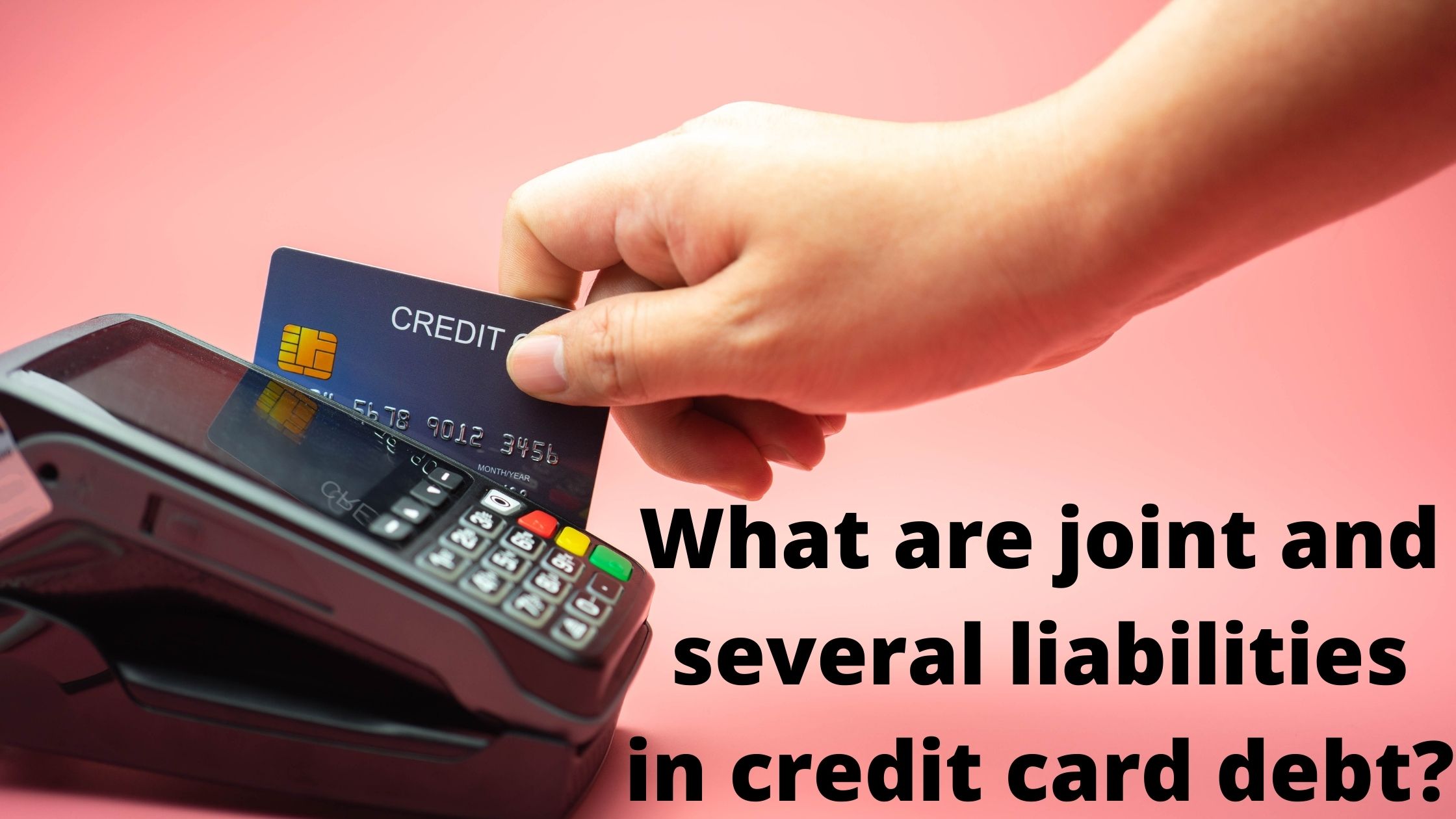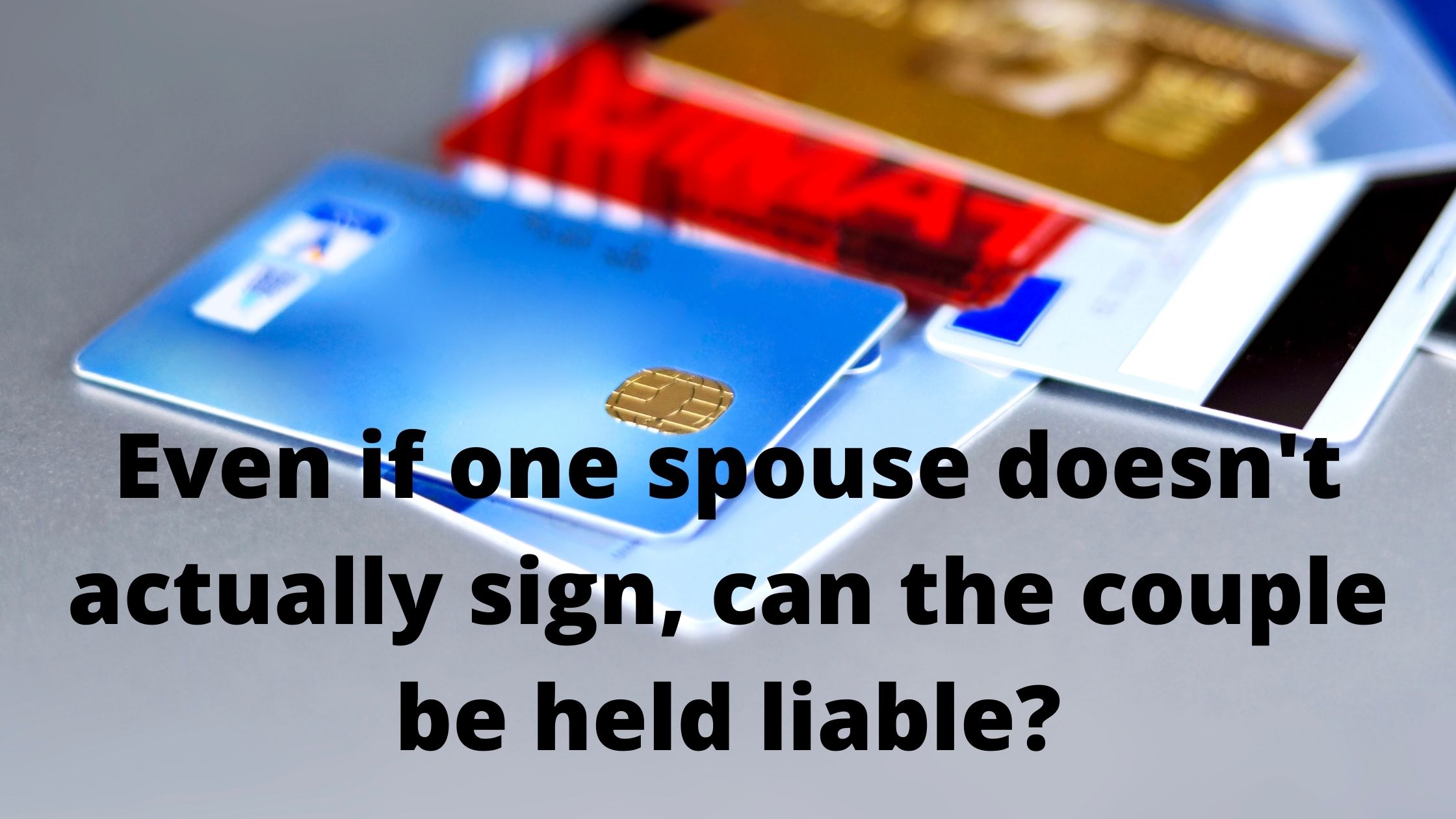A lot of spouses take on the responsibility of their partner’s debt when they get married. This can be a big mistake, as many times debt is accumulated without realizing it. When credit card debts are brought into a marriage, it can create some sticky legal issues. In this article, we will explore some of the legal risks that come with spouse’s credit card debt and how you can protect yourself from them.
What are joint and several liabilities?
When two people are jointly and severally liable for a debt, each person is responsible for the full amount of the debt. This means that if one person owes $1,000 and the other person owes $1,500, both individuals are jointly and severally liable for $2,000. This also means that if one person pays off their portion of the debt, the other person is still liable for the remaining balance.
Joint and several liability can arise in a number of different situations. For example, if your spouse gets a job and begins using their new credit card to pay for things like groceries and rent, they are likely liable for the debt even though you didn’t actually use the card. Likewise, if you sign up your spouse for a credit card and they start using it to pay bills, you are also liable for the debt.
If you are worried about being held responsible for your spouse’s debts, it is important to talk to them about their finances. You can also try to set up a budget together so you know where each person is spending their money. If you think someone may be guilty of joint or several liability, it is important to speak with
What are joint and several liabilities in credit card debt?
When one spouse borrows money from a credit card, the credit card company may assign liability to the borrower and the lender. Joint and several liability means that both borrowers are responsible for the entire debt, even if one of them defaults on the debt. This can result in big financial penalties if one spouse cannot repay the debt.
Even if one spouse doesn’t actually sign, can the couple be held liable?
A spouse may be held responsible for the entire credit card debt amount even if they did not actually sign the loan. This is because, under most circumstances, couples are considered to be joint borrowers. This means that both spouses are responsible for any debt that they jointly incur. In some cases, however, an individual may be able to prove that they were not aware of the debt and were not involved in its creation. If this is the case, then they may be able to escape responsibility for the debt altogether.
Conclusion
There are a few things you should know if you’re considering filing for divorce and your spouse has credit card debt. First, credit card companies can file for bankruptcy even if the debtor isn’t personally liable on the debt. In other words, even if you don’t have any personal liability on the debt, the creditor may still attempt to collect from your estate or take legal action against your spouse. Additionally, courts will look at any financial agreements that were made between spouses in relation to their credit cards when making a decision about who is responsible for paying off those debts. So it’s important to be aware of all of your rights and responsibilities before deciding whether or not to take legal action against your spouse’s credit card debts.